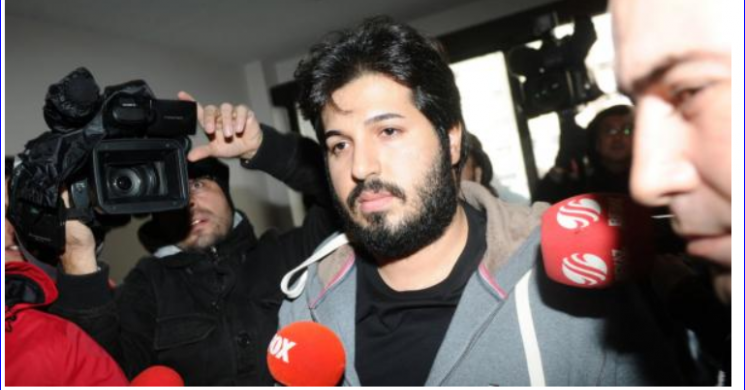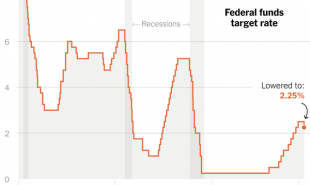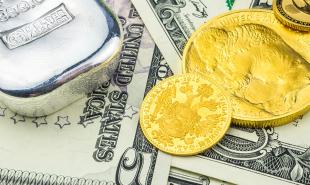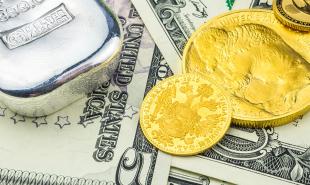
For the past few years, accusations have been levied against Turkey's leaders that as the major intersection of oil from Iran to the west of Turkey, they had been facilitating ISIS oil theft for toll fees. Part of the process is in how the Turks allegedly were laundering the money. This ISIS money laundering eventually became part of a much wider investigation encompassing Turkey's illicit Oil for Gold Finance schemes.
An investigation was made. The results were swept under the table. Then a leak of that hidden report in March of 2017 shed new light on the scope of the scam. Erdogan tried to supress it. Now, today, a trail begins. All that is left for Turkey's leaders is angry rhetoric as this is finally going to see the light of day.
Today:
via zerohedge
For the first time in history, Turkish 10Y bond yields topped 13% this morning and the currency just plunged to a new record low against the dollar as the trial of the gold-trader at the center of the "secret gold trade" with Iran begins today and looks set to implicate Turkish leadership as we warned.
Delays are Done; Now Comes the Table Pounding
As Bloomberg reports, Turkish Deputy Prime Minister Bekir Bozdag is furious...
The U.S. case against Turkish-Iranian gold trader Reza Zarrab “has no legal basis."
The trial is nothing more than an execution through the U.S., of the “unsuccessful Dec. 17-25 coup attempt in Turkey,” by Fetullah Gulen’s organization, referring to a corruption probe in 2013 that was quashed
And according to Ilnur Cevik, a senior adviser to Turkish President Recep Tayyip Erdogan, U.S. attorneys and the judge overseeing the trial have accepted illegally obtained and tampered information as evidence.
There is an attempt to implicate Turkish leaders in the case, Cevik says in remarks on state-run TRT news radio.
Cevik then stated that Preet Bharara, the former U.S. Attorney for the Southern District of New York, “is the one who prepared this plot” and he is linked to Gulen, who is accused of masterminding last year’s failed coup attempt in Turkey, adding that Bharara’s successor Joon H. Kim is now continuing case in same manner.
Both prosecution and judge are linked to FETO, Cevik says (referring to the Turkish govt’s term for people affiliated with Gulen’s network that it considers a terrorist organization).
The case is an effort by Gulenists to come after Turkish govt after last year’s failed coup attempt, he added, saying:
U.S. Justice Dept. should immediately intervene in the case if it wants to “avoid disgrace.”
“The court of the Southern District of New York is seized by the people of FETO. Where is justice in this trial?”
Quite some accusations for innocent men?
And the impact of this uncertainty is clear. The Lira is tumbling to new record lows against the dollar - extending losses following Erdogan's anti central-bank-independence comments last week...
And Turkish 10Y Bond Yields topped 13% for the first time in history...
It seems time's up for delaying this...
“The Zarrab case is the one to watch in terms of U.S.-Turkey relations,” Tim Ash, a London-based strategist for BlueBay Asset Management LLP, said in an email to clients.
“Zarrab is thought to have been close to the Erdogan family and, indeed, he was given Turkish citizenship, alongside Iranian. This is a real stress point."
As Bloomberg notes, Erdogan tried to pressure U.S. officials during the Barack Obama and Donald Trump administrations to drop the prosecution of the trader and has complained in public comments that prosecutors were trying to extract a confession from Zarrab and turn him into an informant. He also claimed President Trump apologized for the prosecution in a phone call.
Full Background and History
As Background and the beginning of the unveiling of Erdogan's illicit trade system:
The Accusation and "Investigation"
Bloomberg reports, after accessing a report leaked on March 14 of a network that spanned Turkey, China, Dubai and Iran, the plot reveals "one of the most complex illicit finance schemes [prosecutors] have seen." It included the classic money-laundering techniques of over-invoicing and false invoicing (exactly as in the case of the Chinese commodity financing scandal underway) but the secret government plan to juice Turkey's exports goes much deeper; and if you think that the exposure of this scheme is slowing Turkey's manipulation, think again. Turkey’s trade balance continues to fluctuate unpredictably as gold stocks flow out of the country in bursts. “Turkey’s going to continue it,” the Turkish economy minister said. “If those casting aspersions on the gold trade are searching for immorality, they should take a look in the mirror.”
We first started noticing major 'odd' exports of gold from Turkey to Iran in May 2012. But in 2013, with a plunging currency, surging inflation, slowing growth, and specter of rapid QE-driven hot money outflows leaving his nation desperate; Zafer Caglayan, the minister in charge of Turkey's $800 billion economy decided that the only way to ensure success in the looming election... was to cheat...
A farcical domestic investigation was undertaken and while the judges and officials who probed the money laundering scheme were either fired or reassigned, the findings in their report were leaked.
The Leaked Findings
The leaked document that Erodgan tried so hard to hide, prepared by the Turkish National Police, shows that investigators probed the activities of a cast of characters that was both powerful and dependent upon each other for favors. There have been some arrests (but no politicians).
The first was Sarraf, the Iranian businessman, who changed his name from Reza Zarrab after he took Turkish citizenship in 2007.
He and Erdogan were photographed on stage together at one public function, and met at a wedding in Ankara.
After Sarraf was arrested in December, Erdogan told reporters that his gold-dealing had “contributed to the country.”
Then, three years later, Bloomberg reports that Zarrab - the gold trader accused of helping Iran evade sanctions - invoked the name of Turkey’s president, Recep Tayyip Erdogan, as part of a scheme that U.S. prosecutors say was supported by Turkey’s government, according to court documents.
U.S. prosecutors in New York have gathered taped conversations and other records that suggest the trader may have sought support from Erdogan.
The Turkish president hasn’t been accused of wrongdoing, and it’s possible that the trader falsely invoked Erdogan’s name to influence others.
The people charged in the case are captured in the recorded conversations, which were introduced in a filing in federal court in Manhattan.
The documents introduced in the sanctions and money-laundering case against the Turkish-Iranian gold trader, Reza Zarrab, could further complicate the relationship between the U.S. and Turkey, a majority-Muslim country long considered a crucial ally in the region.
Friday November 16th, 2017- The Prisoner Disappears
Just days before he's scheduled to go on trial (on Monday), Bloomberg reports that no one is sure where Reza Zarrab is as he is no longer in the US prison system.
Zarrab stands accused of helping Iran evade U.S. sanctions and bribing senior Turkish officials and bank executives.
Anticipation is building from Istanbul to Washington about possible revelations in a case shrouded in mystery and stocked with surprises.
Right now, though, there is a simpler question: Where is Zarrab?
Jailed in grim New York City lockups last year after U.S. authorities seized him en route to a family vacation at Disney World, he is no longer behind bars there.
A lawyer for his accused accomplice says Zarrab has stopped participating in his defense.
Has he decided to cooperate with U.S. prosecutors and tell what he knows about alleged corruption at the highest reaches of the Turkish government?
And the Turkish government wants to know: Is he safe?
Some insight may come during a pretrial hearing on Thursday. Last week, the inmate registry for the U.S. Bureau of Prisons suddenly said Zarrab had been released.
Two people familiar with the case said Zarrab remains in U.S. custody although not in a federal jail.
That sometimes happens when a defendant has agreed to serve as a government witness. Prosecutors and Zarrab’s lawyers have declined to comment in recent days.
This is likely the reason that Turkish gold hoarding has resumed its record climb as reported here last week:
If you are Turkey, and are operating a criminal state, or expect to be treated as one unjustifiably; then you must protect your ability to transact business, preserve wealth, and if need be transfer it to the requested currency to conduct future trade. This is the same motivation behind Gold "backed" Yuan and Gold for Oil deals going on between Iran, Russia, and China.
Bitcoin is also likely a good way to do this as a transfer method. But the BIS can impede use of anything transacted electronically, and will do so down the line.
Gold is the safe space while the outcome of events governing trade are in flux.
Source: Turkish Appetite for Gold Returns with a Vengeance
Political Implications
“The Zarrab case is the one to watch in terms of U.S.-Turkey relations,” Tim Ash, a London-based strategist for BlueBay Asset Management LLP, said in an email to clients.
“Zarrab is thought to have been close to the Erdogan family and, indeed, he was given Turkish citizenship, alongside Iranian. This is a real stress point."
As Bloomberg notes, Erdogan tried to pressure U.S. officials during the Barack Obama and Donald Trump administrations to drop the prosecution of the trader and has complained in public comments that prosecutors were trying to extract a confession from Zarrab and turn him into an informant. He also claimed President Trump apologized for the prosecution in a phone call.
“Erdogan clearly has a strong personal interest in Zarrab’s case, as he has raised it at the highest levels of both the Obama and Trump administrations,” said Amanda Sloat, a senior fellow at the Brookings Institute and former State Department official overseeing U.S.-Turkey relations.
“U.S. judicial proceedings could also hurt the Turkish economy. Since much of Erdogan’s popularity resulted from his successful economic reforms, his domestic political support would be undermined by a downturn.”
Ultimately, the case is a test of U.S.-Turkish relations, already at one of the lowest points in the countries’ longstanding alliance, with analysts questioning how close the charges might get to Erdogan himself.
Read more by Soren K.Group












